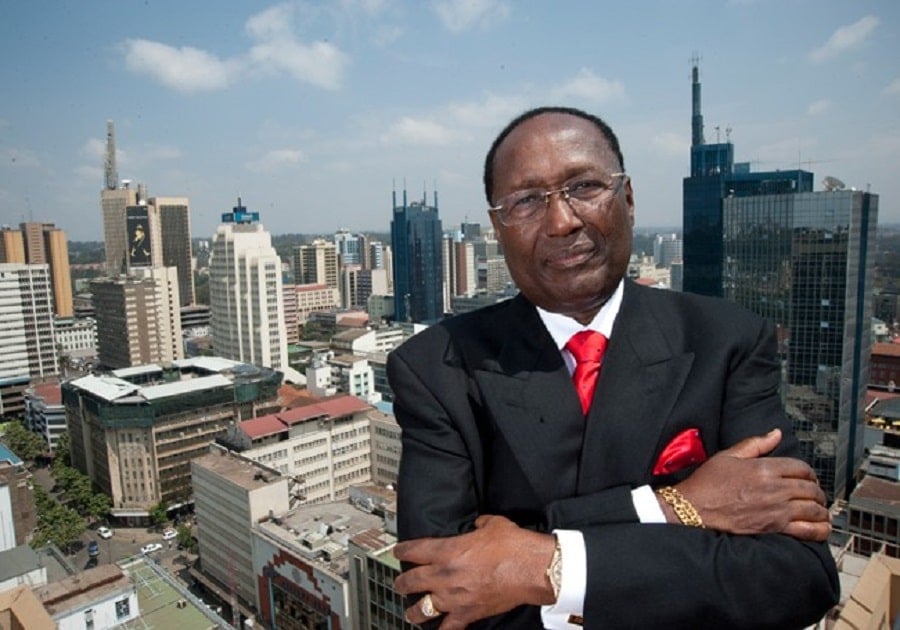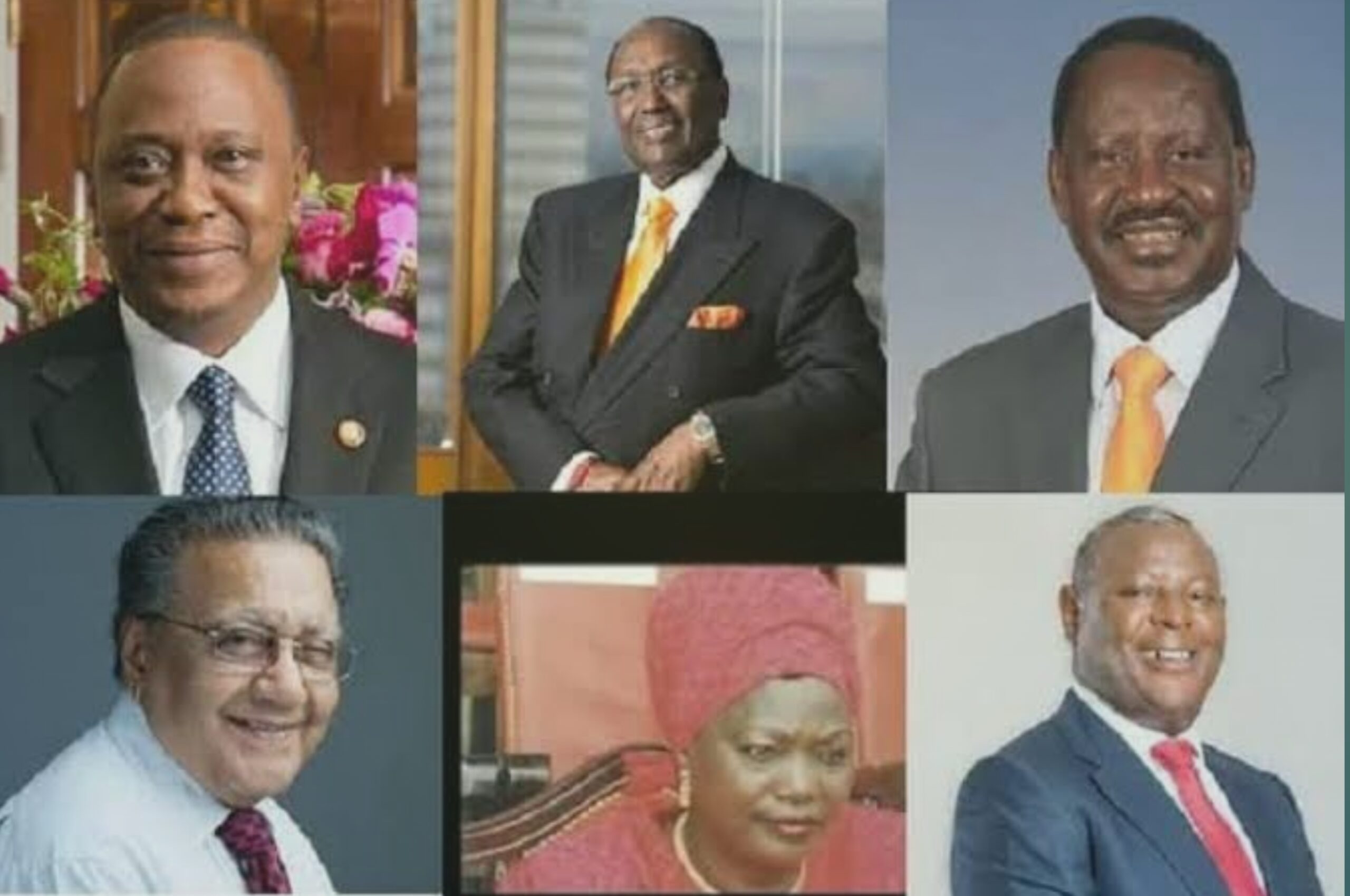Who Are The Top 10 Richest People In Kenya? [Updated]
Ever wondered who commands the lion's share of Kenya's wealth? Prepare to be surprised, because the names you expect on international lists might not be the ones dominating the Kenyan economic landscape.
While Forbes might track global billionaires, the story of wealth in Kenya is a nuanced one, often featuring individuals and families who have built their empires through shrewd business acumen, strategic investments, and a deep understanding of the local market. These titans of industry represent a diverse range of sectors, from manufacturing and telecommunications to finance and media, each contributing significantly to the nation's economic tapestry. Though not always gracing the covers of international magazines, their influence is undeniable and their impact profound. Many have focused on building lasting legacies within the country, contributing to job creation and economic growth that directly benefits the Kenyan people. It's a story of local powerhouses shaping the destiny of a nation, one business deal at a time.
| Attribute | Value |
|---|---|
| Name | Manu Chandaria |
| Net Worth (Estimated) | $1 Billion |
| Source of Wealth | Comcraft Group |
| Company | Comcraft Group |
| Born | March 1, 1929 (age 95 years) Nairobi, Kenya |
| Nationality | Kenyan |
| Education | Harvard University (AMP) |
| Marital Status | Married |
| Children | 2 |
| Residence | Nairobi, Kenya |
| Key Highlights | Founder of Comcraft Group, a multinational conglomerate operating in over 40 countries. Renowned philanthropist and advocate for education and industrialization in Africa. |
| Reference Link | Comcraft Group Official Website |
One name that frequently surfaces in discussions about Kenyan wealth is Manu Chandaria. Estimated to be worth around $1 billion, Chandaria is the founder of the Comcraft Group, a sprawling industrial conglomerate with operations extending across more than 40 countries. Comcraft's success is a testament to Chandaria's entrepreneurial vision and his ability to navigate the complexities of the global market. His focus on manufacturing and infrastructure development has made him a key player in Kenya's economic growth, providing employment opportunities and contributing to the country's industrial base.
- Freeworld Premium What You Need To Know Is It Legit
- Hyungry Temporary Replacement Ep 3 What Fans Are Saying
Then there's Bhimji Depar Shah, another significant figure whose wealth is estimated to be around $790 million. While specific details regarding his business empire are less readily available in the public domain, his presence on lists of Kenya's wealthiest individuals underscores his significant contributions to the nation's economy. Understanding the nuances of their holdings requires delving into the intricate web of Kenyan business and finance.
It's important to acknowledge that accurately pinpointing the exact net worth of individuals, especially in a dynamic and often opaque economic environment like Kenya, can be challenging. Estimates are frequently based on publicly available information, market valuations, and expert analysis, but they should be viewed as approximations rather than definitive figures. The true extent of someone's wealth can be difficult to ascertain due to private holdings, offshore accounts, and complex investment structures.
The concentration of wealth in Kenya, like in many nations, reveals a significant disparity. According to recent studies, the richest 10% of the population control a disproportionate share of the country's resources, earning, on average, 23 times more than the poorest 10%. This stark contrast highlights the ongoing challenges of income inequality and the need for policies that promote inclusive growth and equitable distribution of wealth. Bridging this gap requires addressing systemic issues, such as access to education, healthcare, and economic opportunities for all Kenyans.
- Sean Parker From Napster To Facebook His Untold Story
- Hottest Adult Movies List Find Your Perfect Steamy Flicks
Beyond individual wealth, family dynasties play a crucial role in the Kenyan economic landscape. The Kenyatta family, for instance, holds a prominent position, owing to their historical ties to the nation's founding and their extensive business interests. Mama Ngina Kenyatta, the wife of the former president Jomo Kenyatta, remains a significant figure in Kenya's business and political circles. Her involvement in various sectors, coupled with the family's historical influence, solidifies their status as one of the wealthiest and most influential families in the country.
The Kirubi family is another example of a powerful economic force in Kenya. With an estimated net worth of $400 million, the family's interests span various sectors, including media, manufacturing, and real estate. Their ownership of companies like Centum Investment Company and Haco Industries demonstrates their diversified portfolio and their ability to navigate the complexities of the Kenyan business environment. The Kirubi family's success underscores the importance of diversification and strategic investments in building lasting wealth.
Moreover, the media landscape in Kenya is significantly shaped by the ownership of influential families. The control of media outlets like Kenya Television Network (KTN), Vybezz Radio, Standard Newspaper, Radio Maisha, and Spice FM illustrates the power and influence that these families wield in shaping public opinion and controlling the flow of information. Their involvement in the media industry not only contributes to their wealth but also provides them with a platform to influence political and economic discourse.
Transportation and logistics also represent key sectors where wealthy families have established a strong presence. The ownership of entities like Eagles Airline, Car Track Kenya, and Kent Ship highlights their involvement in facilitating trade, transportation, and security services. These investments underscore the importance of infrastructure and logistics in supporting economic growth and facilitating the movement of goods and people across the country.
While lists of the wealthiest Africans often feature names like Aliko Dangote of Nigeria, whose net worth is estimated at $23.8 billion, and Johann Rupert of South Africa, with a net worth of $13.7 billion, the Kenyan landscape presents a different picture. The absence of Kenyan names on Forbes' Africa's Billionaires list doesn't necessarily indicate a lack of wealth but rather a different approach to wealth accumulation and management. Many Kenyan entrepreneurs prioritize reinvesting in their businesses, supporting local communities, and building sustainable enterprises rather than focusing solely on accumulating personal wealth that would qualify them for international rankings.
The success stories of Kenyan entrepreneurs often involve navigating a complex web of challenges, including political instability, bureaucratic hurdles, and limited access to capital. Despite these obstacles, many have demonstrated resilience, innovation, and a deep understanding of the local market, allowing them to build thriving businesses and contribute to the country's economic development. Their stories serve as an inspiration to aspiring entrepreneurs and demonstrate the potential for success in Kenya's dynamic business environment.
It's important to recognize that the concept of wealth extends beyond mere financial accumulation. Many wealthy Kenyans are also actively involved in philanthropy, supporting education, healthcare, and community development initiatives. Their contributions to society underscore the importance of giving back and using wealth to create positive social impact. Their philanthropic efforts often target critical areas such as poverty reduction, access to clean water, and environmental conservation.
The telecommunications sector has also proven to be a significant driver of wealth creation in Kenya. The rapid growth of mobile technology and internet penetration has created opportunities for entrepreneurs to develop innovative solutions and services that cater to the needs of a tech-savvy population. The success of companies like Safaricom, with its revolutionary mobile money transfer service M-Pesa, demonstrates the transformative potential of technology in driving economic growth and improving financial inclusion.
The fast-moving consumer goods (FMCG) sector is another area where wealthy Kenyans have made significant investments. The demand for everyday products such as food, beverages, and personal care items creates a stable and lucrative market for businesses that can effectively cater to consumer needs. The success of companies like Bidco Africa, a leading manufacturer of edible oils, detergents, and other FMCG products, highlights the potential for growth and wealth creation in this sector.
Banking and finance also play a crucial role in the Kenyan economy, providing access to capital and financial services for businesses and individuals. Wealthy Kenyans have made significant investments in the banking sector, establishing and acquiring financial institutions that contribute to the country's financial stability and economic growth. Their involvement in the banking sector underscores the importance of access to capital in supporting entrepreneurship and economic development.
While some sources might point to musicians as being among the wealthiest Kenyans, it's important to note that the entertainment industry, while vibrant, generally doesn't generate the same levels of wealth as sectors like manufacturing, telecommunications, and finance. While successful musicians like Sauti Sol may enjoy considerable popularity and commercial success, their net worth typically pales in comparison to that of established business tycoons.
The economic landscape of Kenya is constantly evolving, shaped by global trends, technological advancements, and government policies. Understanding the dynamics of wealth creation in Kenya requires a nuanced perspective, taking into account the historical context, the political environment, and the cultural factors that influence business practices. The individuals and families who have amassed significant wealth in Kenya have often done so through a combination of hard work, innovation, strategic investments, and a deep understanding of the local market. Their stories serve as a testament to the entrepreneurial spirit and the potential for success in Kenya's dynamic economy.
Looking ahead, the future of wealth creation in Kenya will likely be shaped by factors such as technological innovation, globalization, and the country's increasing integration into the global economy. The rise of e-commerce, the growth of the digital economy, and the increasing demand for sustainable and socially responsible businesses will create new opportunities for entrepreneurs to create wealth and contribute to the country's economic development. However, addressing challenges such as income inequality, corruption, and climate change will be crucial for ensuring that wealth creation benefits all Kenyans and contributes to a more equitable and sustainable future.
It's also crucial to acknowledge the role of government policies in shaping the distribution of wealth. Policies related to taxation, regulation, and investment can have a significant impact on the ability of individuals and businesses to create wealth. Creating a level playing field, promoting transparency, and investing in education and infrastructure are essential steps towards fostering a more inclusive and equitable economy.
Moreover, the importance of ethical business practices cannot be overstated. Wealth creation should not come at the expense of environmental sustainability, social justice, or human rights. Businesses have a responsibility to operate in a responsible and ethical manner, contributing to the well-being of their employees, their communities, and the planet. The rise of socially responsible investing and the increasing demand for sustainable products and services reflect a growing awareness of the importance of ethical business practices.
In conclusion, the story of wealth in Kenya is a complex and multifaceted one, involving a diverse range of individuals, families, and businesses. While international rankings may focus on global billionaires, the Kenyan economic landscape is shaped by local powerhouses who have built their empires through shrewd business acumen, strategic investments, and a deep understanding of the local market. Their contributions to the country's economic development are undeniable, and their stories serve as an inspiration to aspiring entrepreneurs. However, addressing challenges such as income inequality, corruption, and climate change will be crucial for ensuring that wealth creation benefits all Kenyans and contributes to a more equitable and sustainable future.
- Freeworld Premium What You Need To Know Is It Legit
- Sean Parker From Napster To Facebook His Untold Story

Top 10 Richest People In Kenya 2023 YouTube

Top 10 Richest People In Kenya And Their Net Worth

A List of Top 10 Richest People in Kenya & Their Net Worth Nexbitke